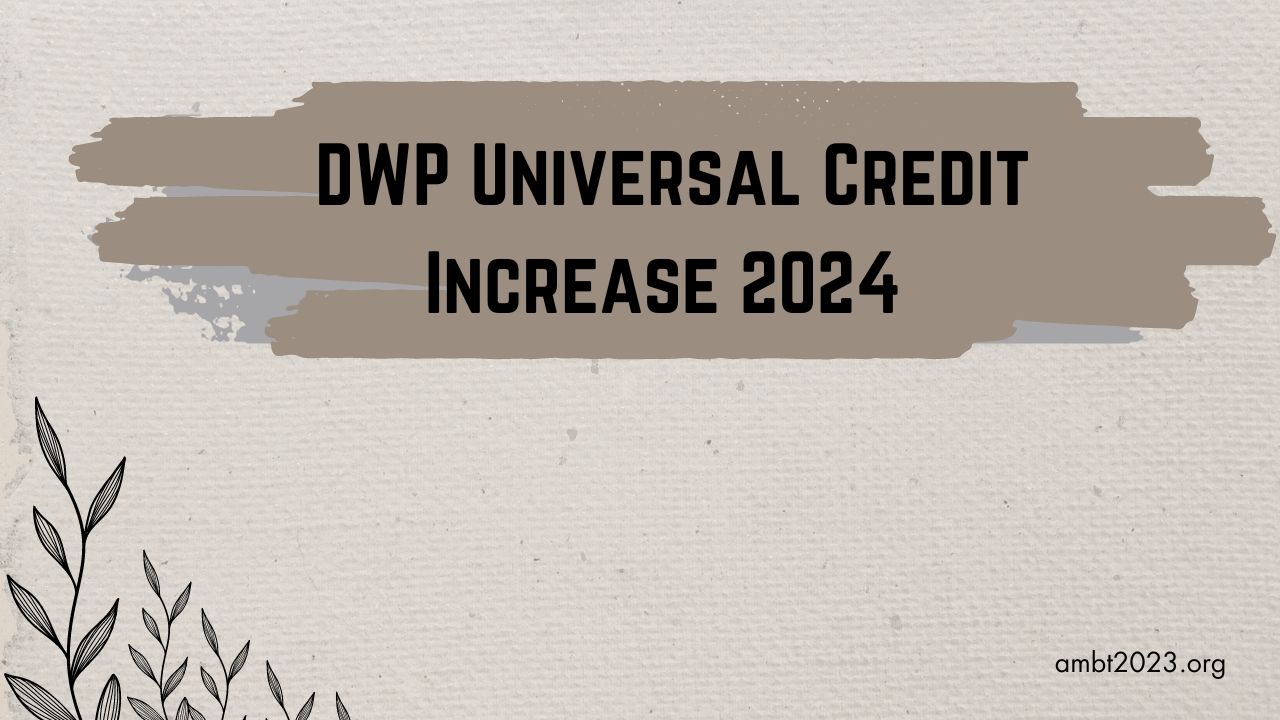DWP Universal Credit £470 2024: The government of the United Kingdom plans to introduce a major initiative called the DWP Universal Credit £470 Increase in June 2024 to reduce financial burdens on its citizens. The Department for Work and Pensions (DWP) has announced a £470 increase in Universal Credit to help families and individuals struggling financially. Given the continued economic uncertainty and the growing cost of living, many people across the country are relieved by the DWP Universal Credit £470 Increase plan.
The DWP Universal Credit £470 Increase is an initiative on the part of the government to assist its people in challenging circumstances. The choice to increase beneficiary pensions indicates a dedication to guaranteeing the welfare and stability of people and families, especially those economically disadvantaged. The government’s commitment to giving those in need real help is demonstrated by Chancellor Jeremy Hunt’s announcement of this significant change in the fall statement in 2023.
News of DWP Universal Credit £470 Increase:
Millions of qualifying families around the UK will gain significantly from introducing the DWP Universal Credit £470 Increase. This extra help can dramatically improve the quality of life for struggling financially. Nonetheless, there are several difficulties in distributing these DWP Universal Credit £470 Increase Program payments.

Although particular beneficiaries will get the increase in June 2024, others must wait for alerts about modifications to their DWP Universal Credit £470 Increase Payment schedules. Residents, especially low-income families having difficulty making ends meet, are frustrated by the delays in the distribution of this tailored strategy, which is intended to offer immediate support to families suffering from pressing financial issues.
DWP Universal Credit £470 Increase Implementation:
Beyond providing financial support, the DWP Universal Credit £470 Increase is a lifeline for many people and families facing unstable economic times. Access to more money can help ease the strain of growing bills and provide stability and security in an otherwise unstable financial environment. UC claimants, who depend on these monies to pay for necessities and maintain their living level, are concerned about the delays in paying out the increased amounts.
The delay in the £470 rise in DWP Universal Credit payments is a clear reminder of how crucial it is for the government to act quickly and effectively. Payment schedule interruptions worsen the financial troubles of low-income families and individuals already facing financial difficulties. This leads to increased stress and more significant uncertainty about their economic fate. These delays significantly impact people’s general well-being and quality of life, making getting necessities like food, shelter, and medical treatment more difficult.
News on the £470 DWP Increase Payment:
In the long run, a growing number of people concur that additional funding is necessary to assist people in resolving persistent financial difficulties. Leaders must develop innovative strategies to support those who cannot afford the necessities as costs rise. They are discussing ways to help low-income families and individuals so they may feel solid and comfortable in their financial situation.
To put it briefly, the £470 increase in DWP Universal Credit is like a huge helping hand for those in the UK struggling financially. It intends to provide them with some respite from life’s escalating expenses.
However, since funds aren’t constantly reaching individuals promptly, it’s evident that the government must take action to guarantee that everyone receives the assistance they require on schedule.
To ensure that no citizen is left behind in hard times, leaders must prioritize all residents’ welfare and financial stability while discussing ways to assist those who need it most.
DWP Universal Credit Payment Dates:
Recall that even if assessments begin on April 7, they will still be paid at the prior rates if they started before April 8. You will miss the higher rates by one day, and they won’t be applied to your new payment on May 13 if your assessment period is from April 7 to May 6.
| 8th to 7th (paid 14th) | May 14 |
| 9th to 8th (paid 15th) | May 15 |
| 10th to 9th (paid 16th) | May 16 |
| 11th to 10th (paid 17th) | May 17 |
| 12th to 11th (paid 18th) | May 18 |
| 13th to 12th (paid 19th) | May 19 |
| 14th to 13th (paid 20th) | May 20 |
| 15th to 14th (paid 21st) | May 21 |
| 16th to 15th (paid 22nd) | May 22 |
| 17th to 16th (paid 23rd) | May 23 |
| 18th to 17th (paid 24th) | May 24 |
| 19th to 18th (paid 25th) | May 25 |
| 20th to 19th (paid 26th) | May 26 |
| 21st to 20th (paid 27th) | May 27 |
| 22nd to 21st (paid 28th) | May 28 |
| 23rd to 22nd (paid 29th) | May 29 |
| 24th to 23rd (paid 30th) | May 30 |
| 25th to 24th (paid 31st) | May 31 |
| 26th to 25th (paid 1st) | June 1 |
| 27th to 26th (paid 2nd) | June 2 |
| 28th to 27th (paid 3rd) | June 3 |
| 29th to 28th (paid 4th) | June 4 |
| 30th to 29th (paid 5th) | June 5 |
| 31st to 30th (paid 6th) | June 6 |
| 1st to 31st (paid 7th) | June 7 |
| 2nd to 1st (paid 8th) | June 8 |
| 3rd to 2nd (paid 9th) | June 9 |
| 4th to 3rd (paid 10th) | June 10 |
| 5th to 4th (paid 11th) | June 11 |
| 6th to 5th (paid 12th) | June 12 |
| 7th to 6th (paid 13th) | June 13 |
